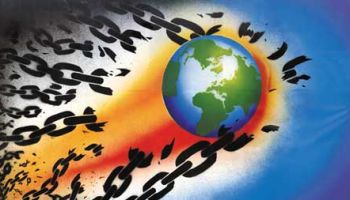UN Supports WikiLeaks’ Right To Publish

A UN statement argues the human right to publish in the public interest, but restraint should be exercised
Following a bad few weeks for WikiLeaks, Santa seems to have arrived early to deliver a surprise gift in the form of backing from the United Nations.
In a joint statement by two UN officials, member states have been reminded of their duty to observe citizen rights to access information held by national authorities.
The rebuke from Frank LaRue, the UN special rapporteur on the promotion and protection on the right to freedom of opinion and expression, and Catalina Botero Marino, the inter-American commission on human rights special rapporteur for freedom of expression, will upset the right wing faction in the US government and provide support for WikiLeaks editor-in-chief Julian Assange as court proceedings are ranged against him.
The Right To Know
 The full statement has been posted on the WikiLeaks Website. In it, LaRue and Botero Marino have pointed out the right of every person to access public information and to know what governments are doing on their behalf.
The full statement has been posted on the WikiLeaks Website. In it, LaRue and Botero Marino have pointed out the right of every person to access public information and to know what governments are doing on their behalf.
“National authorities should take active steps to ensure the principle of maximum transparency, address the culture of secrecy that still prevails in many countries, and increase the amount of information subject to routine disclosure,” the statement said.
The crucial paragraph in the release points out that public authorities and their staff bear sole responsibility for protecting the confidentiality of legitimately classified information under their control. This exempts other individuals “including journalists, media workers and civil society representatives” from liability if they “receive and disseminate classified information because they believe it is in the public interest”.
A conclusion to this section may allow the US government some solace and room to manoeuvre. It states that the above holds true only if the whistleblower did not commit fraud or another crime to obtain the information.
WikiLeaks is not mentioned specifically in the statement but the point of conjecture will be whether Julian Assange was aiding and abetting the thief who stole the cables now in WikiLeaks’ possession.
Protection For Whistleblowers
However, the UN officials do feel that: “Government ‘whistleblowers’ releasing information on violations of the law, on wrongdoing by public bodies, on a serious threat to health, safety or the environment, or on a breach of human rights or humanitarian law should be protected against legal, administrative or employment-related sanctions if they act in good faith.”
The statement also condemns governments constraining press freedom and states that interference should be prohibited by law. It adds that journalists should also exercise judgement as to whether a disclosure is actually in the public interest especially “when reporting information from confidential sources that may affect valuable interests such as fundamental rights or the security of other persons”.
In a slight detour, a swipe is also taken at the current consideration of net neutrality. “Filtering systems which are not end-user controlled – whether imposed by a government or commercial service provider – are a form of prior censorship and cannot be justified,” the statement warns. “Corporations that provide Internet services should make an effort to ensure that they respect the rights of their clients to use the Internet without arbitrary interference.”